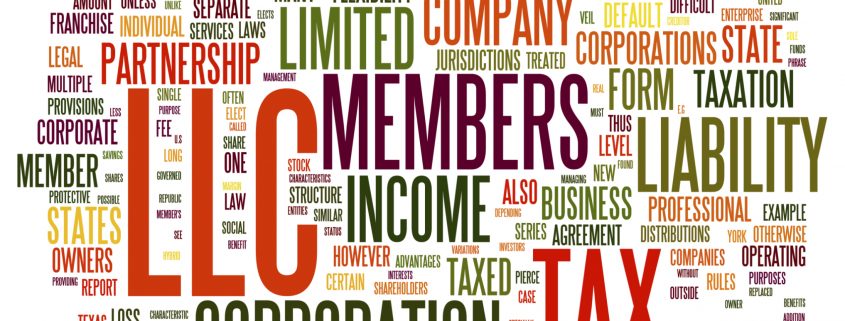How Taxes And Business Entities Work
How Taxes And Business Entities Work
Is there any difference in an LLC or S-Corp when forming an entity and looking at potential tax liability?
When clients inquire on what type of entity should be formed for the operation of a business venture, we refer to that type of discuss ion as “Choice Of Entity”.
Both LLC’s and S-Corp’s have some similarities.
They both offer the following advantages over not incorporating:
• Limited liability: Directors, officers, shareholders/members, and employees enjoy limited liability protection.
• Pass-through taxation: Owners report their share of profit and loss on their individual tax returns.
• Double taxation elimination: Income is not taxed twice (unlike corporate income which is taxed at the corporation level and again then at the individual level as dividend income when distributions are made).
• Investment opportunities: The company can attract investors through the sale of shares of stock or membership interests.
• Perpetual existence: The business continues to exist even if the owner leaves or dies.
The big difference though is how these entities are taxed which people are not aware knowing that for both types of entities, the income or loss flows through to the individual income tax returns of the owners. An S-Corp will follow the corporation tax code. An LLC can follow either the partnership tax code or the corporation tax code or even be taxed as an entity disregarded as separate from its owner.
To answer which tax code is most beneficial, we consider several factors including the type of business being conducted. Real estate ventures are usually better off being subject to the partnership tax code while other types of businesses are usually better off being subject to the corporation tax code.
How the owners are to be compensated or paid back their investment also impact what entity to use. It is common that owners who fund a business over owners who provide sweat equity will demand a priority when any distributions are made. It is also advisable that for owners who render services to the business pick up ordinary income as compensation for the service provided. The choice of entity becomes key to minimize the adverse tax consequences that could otherwise arise if proper planning is not made.
We also consider the ultimate exit strategy of the business in determining what entity to use. Depending on how the business is first going to be capitalized or financed, the exit strategy for the business will have different tax consequences if the entity follows the corporation tax code or the partnership code.
Since the initial choice of entity in most cases cannot subsequently be changed without incurring additional tax liability, you should seek tax counsel BEFORE forming the entity and not waiting until afterwards when it is too late.


 Follow
Follow Follow
Follow
